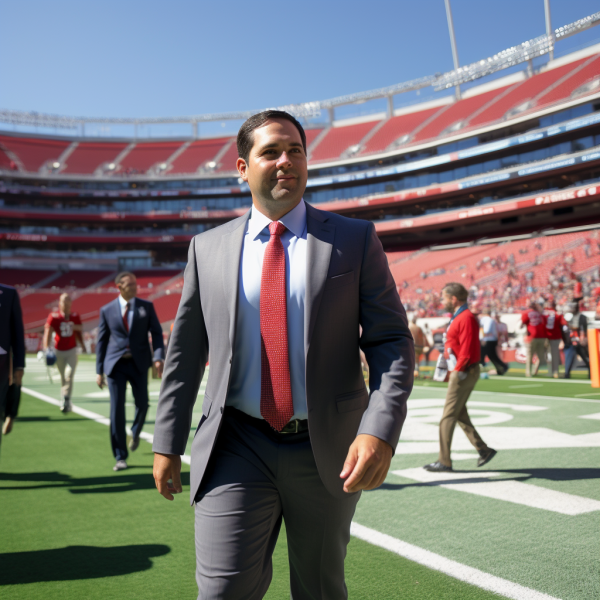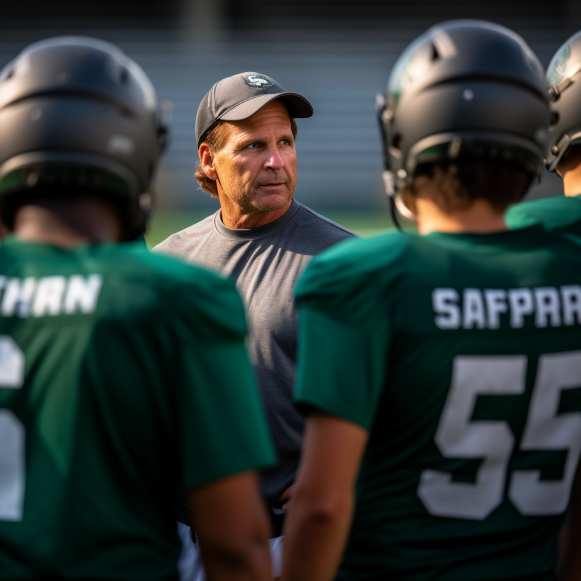San Francisco 49ers CEO Jed York faces insider trading allegations in Chegg cheating lawsuit

San Francisco 49ers CEO Jed York and others are accused of insider trading at Chegg Inc., a Santa Clara-based online education platform under fire for allegedly assisting students in cheating during the height of the pandemic.
Two shareholder lawsuits filed earlier this year in the United States District Court for the Northern District of California also accuse York, Chegg CEO Dan Rosensweig, and six others of breaching their fiduciary duties to shareholders.
According to the lawsuits, York, in particular, engaged in insider stock trading based on “nonpublic information,” demonstrating “his motive in facilitating and participating in the scheme.”
Chegg was founded in 2006 and debuted on the New York Stock Exchange in 2013 — the same year York joined its board of directors — at $12.50 per share, raising $187.5 million in its IPO.
Chegg and the 49ers announced a multi-year partnership in 2019 to provide $100,000 in scholarships to Bay Area first-generation college students. Chegg would donate $500 to the scholarship fund for every first down made by the 49ers at Levi’s Stadium. Five college students were chosen at the end of the season to receive $20,000 each.
Chegg’s subscribers increased when the coronavirus pandemic began in 2020, as schools closed and students were forced to learn from home. According to the lawsuit filed by shareholders Rak Joon Choi and Joseph Robinson, Chegg’s revenues increased by nearly 50% between the first quarter of 2020 and the second quarter of 2021.
According to the lawsuits, Chegg’s design “enabled the company to monetize off its platform’s capacity to assist in academic cheating” and that Chegg failed to recognize that when students returned to the classroom, the opportunity to use the service to cheat would “diminish” and result in declining revenues.
The company’s executives and board of directors allegedly deceived investors as well, telling them that cheating occurred only in “very isolated cases,” according to the lawsuits.
Chegg’s executives and directors have been charged with breach of fiduciary duty for conducting a secondary public offering in February 2021 while its stock was trading at inflated prices due to “false and misleading statements.” As a result, the company earned $1.09 billion.
Rosenweig profited $48.8 million by selling 552,000 shares of stock at average prices ranging from $63.81 to $99.55 per share during the period when stock prices were considered inflated. According to the lawsuits, York sold 20,000 shares of stock around the same time — 10,000 on July 1, 2020, and another 10,000 on October 1, 2020 — for a profit of $1.4 million. York was unable to be reached for comment, and Brian Brokaw, who represents York and the 49ers, declined to comment on any of the lawsuit’s details, including the insider trading allegations. A Chegg spokesperson said in a statement that the allegations against the board of directors were “wholly unfounded.”
“Chegg is actively and resolutely defending herself against these baseless claims in official court filings,” she stated. “Chegg takes academic integrity very seriously and has invested significant resources to protect it, such as Honor Shield, a free academic integrity tool, to support educators.”
In a statement, Brokaw said, “the 49ers are proud of the work we accomplished with Chegg to provide scholarships for first-generation students.”





